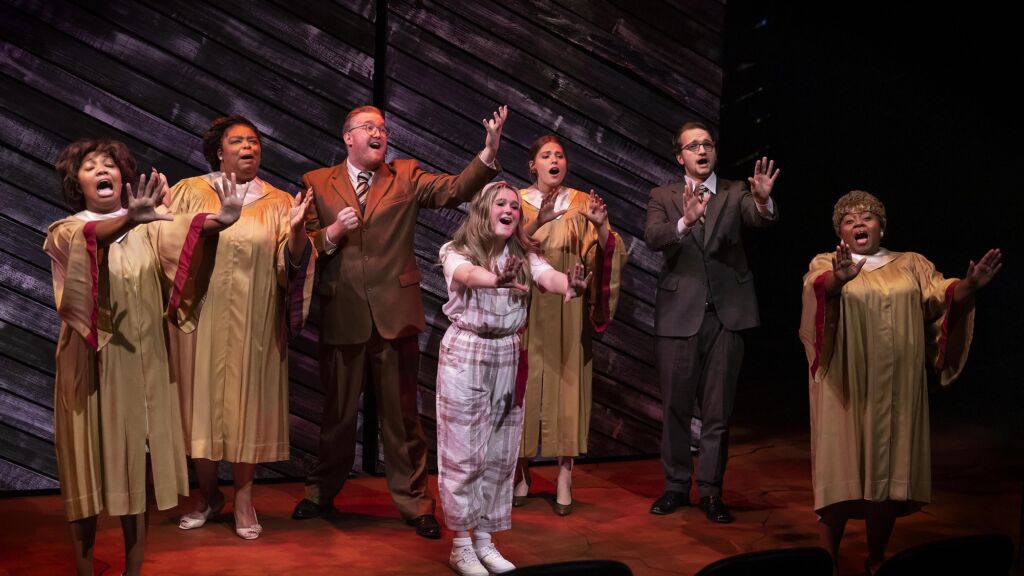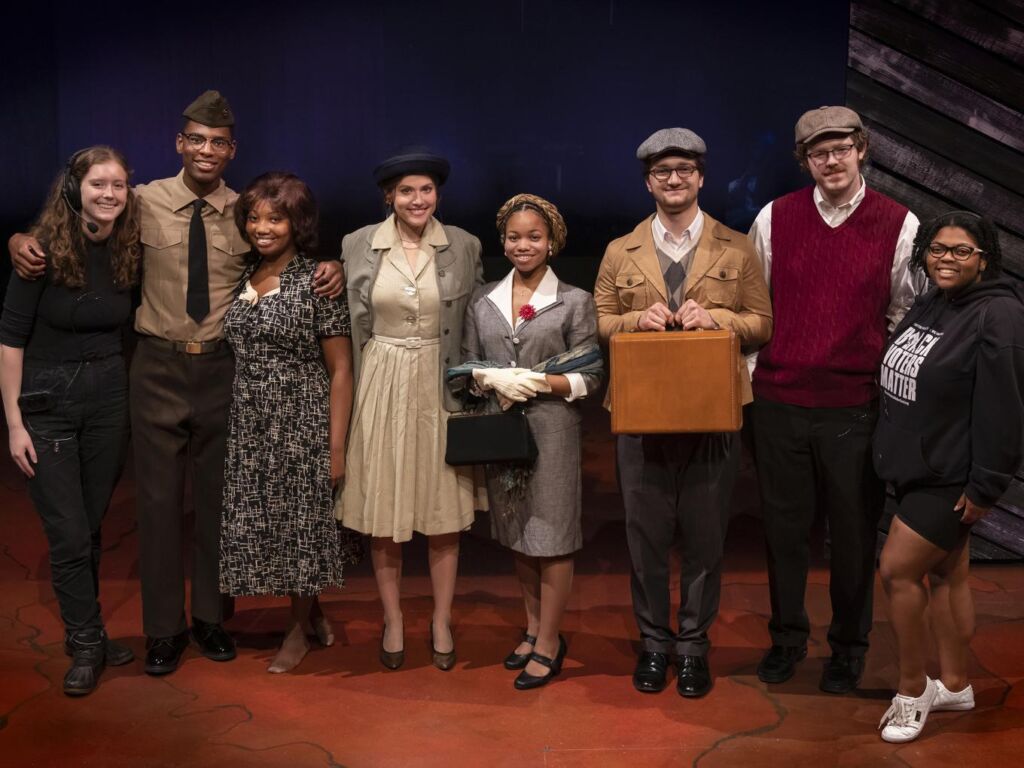ASC Grant Supporting New Professional Theater Company at Davidson College

By Page Leggett
Mark Sutch, Davidson College’s theater department chair, had an idea: To start a professional theater company on campus.
He shared the idea with Karli Henderson, a theater department lecturer who came to Davidson five years ago from Louisiana State University – a school with a professional affiliated theater on campus. She knew all the possibilities, but she also did her research.
“One of our primary reasons for creating this theater on Davidson’s campus was to give our students professional theater experience,” she said.
But the theater, which staged its first production in June, has turned into much more than a training ground.
Once planning for the new theater – called Common Thread Theatre Collective (CTTC) – got underway, the pandemic hit. And then George Floyd was murdered. The Black Lives Matter movement gained steam, and the theater world took notice.
It was clear that this burgeoning theater company needed to address what was happening in the country.
BIPOC theater workers penned “We See You, White American Theater,” which pointed out all the systemic racism that exists in the theater industry. The #MeToo movement inspired a similar document called “The Chicago Theater Standards,” which dealt with consent-based rehearsal practices and making sure people feel they’re in safe spaces.
“Historically, theater has always had this ‘the-show-must-go-on’ mentality no matter how uncomfortable you feel or how difficult it is,” Henderson said. “I wanted to create something that took all of that into account.”
But how to tell inclusive stories at Davidson, a predominantly white institution?
“It would be really difficult for me to tell the stories we wanted to tell – stories about historically underrepresented groups,” Henderson said. “I needed artistic partners to join in on that.”
She found them at North Carolina A&T State University.
“They have a really wonderful theater program that’s nationally recognized,” she said. “One of my former colleagues, Greg Horton, is their interim head of theater. I reached out to him, and he was super interested and brought on one of his colleagues – Donna Baldwin-Bradby. And we formed this artistic partnership across the four of us. It’s a distributed leadership model and a partnering of a small liberal arts, predominantly white institution with the largest HBCU in the country.”
There’s no one person in charge at Common Thread. Henderson shares leadership duties with Sutch, Horton and Baldwin-Bradby.
“We chose the name for the theater together, we did all the casting together, we chose the artists that were part of the production team together,” she said. “So, there has not been any one person who has been ‘in charge.’ It’s really been a collaborative effort.”
All four are dedicated to inclusive theater.
“We want to create a strong company of local artists that value professional standards of production and work with us to produce stories that center communities and voices that have traditionally been underrepresented in the American theater community,” said Henderson.

For the inaugural season – summer 2022 – CTTC has eight interns; four are from Davidson, and four are from N.C. A&T.
“They’ve formed these wonderful partnerships and collaborations,” Henderson said. “We also brought in nine other professional guest artists. It’s been a really rewarding and informative experience for everybody.”
The interns have taken on multiple roles in the company. Some are actors. One even has a leading role. One was the assistant stage manager for their inaugural production, “Violet”; another will be the stage manager for “Barbecue,” the second show of season one.
“They’ve also all been working in the scene shop, the electric shop, the costume shop,” Henderson said. “Some have been doing marketing and publicity work. We’ve allowed them to touch on a lot of different areas of theater. We’re not pigeonholing them into one thing.”
They’re also getting the opportunity to create their own show.
“They’ve written and done the design work for a 20-minute children’s show that we’ll perform here on our green at Davidson and take to a couple of day camps,” Henderson said.
A $10,000 Cultural Vision Grant from ASC is helping ensure paydays for all the actors and interns.
“We have been really intentional about making sure people are paid for their work,” Henderson said.
Common Thread performs in Davidson’s Barber Theatre, a small, flexible, black box space. “We love the space because it provides the ability to have an intimate experience with the audience,” Henderson said. “Right now, it’s configured to have 130 seats. It’s a really intimate experience. The kind of work we want to do really lends itself to that.”
Henderson and team expect to learn a lot of lessons during their inaugural season they can apply to future seasons. They may decide to expand at some point, but for the near future, Henderson sees Collective Thread offering exclusively summer theater.
In the case of CTTC, summer theater doesn’t necessarily connote lighthearted fare. This is theater meant to provoke thought and discussion.
Don’t Miss the Next Common Thread Theatre Collective Performance!
Donna Baldwin-Bradby directs the “Barbecue” (July 15-31), a play that centers around the O’Mallerys, a dysfunctional group of siblings who come together for a cookout. But the real reason for the reunion is to stage an intervention for sister Barbara, who has a bad drug habit. Interestingly, there are in fact two O’Mallery families – one white and one Black. Each appear in different, but similar, scenes that contrast how family politics play out across two different races. Robert O’Hara, a Black playwright, wrote “Barbecue.”
Learn more/get tickets. Tickets, all general admission, range from $15 to $28. Common Thread Theatre Collective performances are at Davidson’s Barber Theatre inside the Cunningham Theatre Center. Learn more: davidson.edu\commonthread and Get tickets here.

